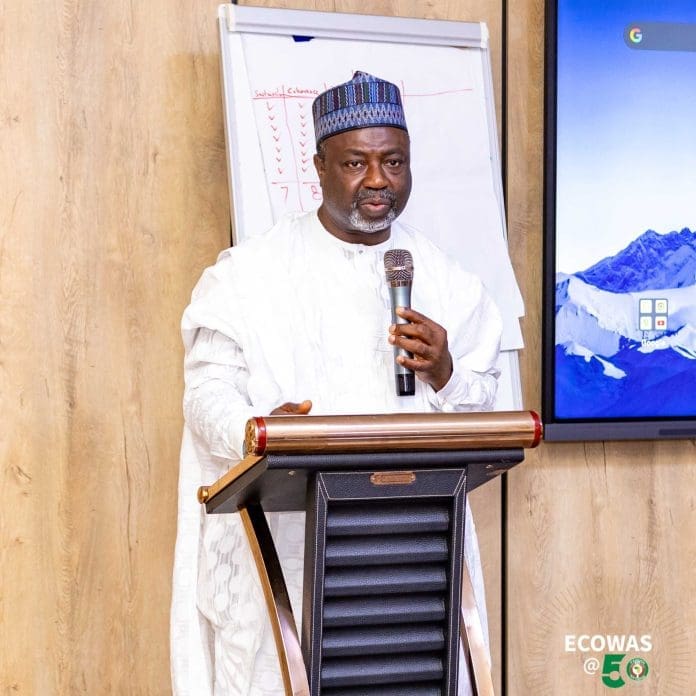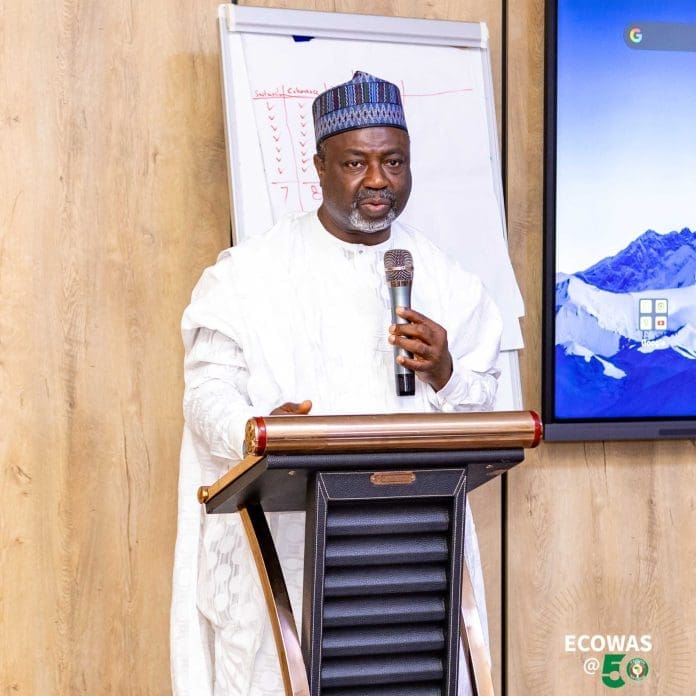
The Commissioner for Internal Services of the Economic Community of West African States
(ECOWAS) Commission, Prof. Nazifi Abdullahi Darma, invited participants in the training
course on results-based project and programme management, monitoring and evaluation, to use the knowledge they had acquired during the session to promote the regional organisation.
Speaking on Friday, 17 October 2025, the last day of the training session held at Zuma Rock in Niger State, Nigeria, Professor Darma reminded participants of their role and duty in the development of ECOWAS.
“ECOWAS is the most successful of Africa’s regional economic commissions, and you must do everything possible to further enhance its influence,’’ he said, before presenting each participant with a certificate of participation in the training.
Around fifty programme officers and assistants from the ECOWAS Commission took part in this five-day training course, organised by the Human Resources Directorate of the Commission’s Internal Services Department.
The main objective of the training was to equip participants with the skills and tools necessary to plan, implement, monitor and evaluate projects and programmes, with the aim of achieving measurable results.
Under the supervision of Mrs Kete Gillis-Harry, Senior Career Management Officer at the ECOWAS Commission, the training enabled participants to gain a better understanding of the definition of objectives, activities and expected or anticipated results when developing and implementing projects and programmes.
It also gave them the opportunity to gain a better understanding of the process and key elements of strategic planning in the context of an organisation, project or programme.
The training also focused on the analysis of external environmental factors, such as political, economic, social, technological, environmental and legal factors that influence a strategy.
It also enabled participants to gain a better understanding of the fundamental principles of results-based management, accountability and continuous learning, as well as the internal strengths and weaknesses and external opportunities and threats of a strategy.
Other modules of the training focused on theories and assumptions of change. Participants
learned how to better use logical models, assumptions and theory of change to link activities to desired long-term outcomes.
The role of indicators in measuring project performance and results, the different types and levels of indicators, collecting project data using indicators, and identifying and comparing data collection methods such as surveys, group discussions and interviews with key informants were also on the agenda for this training session.
Participants also attended presentations on conducting rapid and cost-effective evaluations, managing and mitigating risks in project and programme implementation, digital data collection tools and their application in project and programme monitoring and evaluation, performance reporting and strategic planning.
They also familiarised themselves with concepts such as gender and social inclusion in the planning, implementation, monitoring and evaluation of projects and programmes, communication skills for tailoring messages to different stakeholder groups, team coordination, and the development of project and programme proposals.
This training is necessary to improve the effectiveness and efficiency of the Regional Organisation’s projects and programmes and ensure their positive impact for the benefit of West African citizens.
